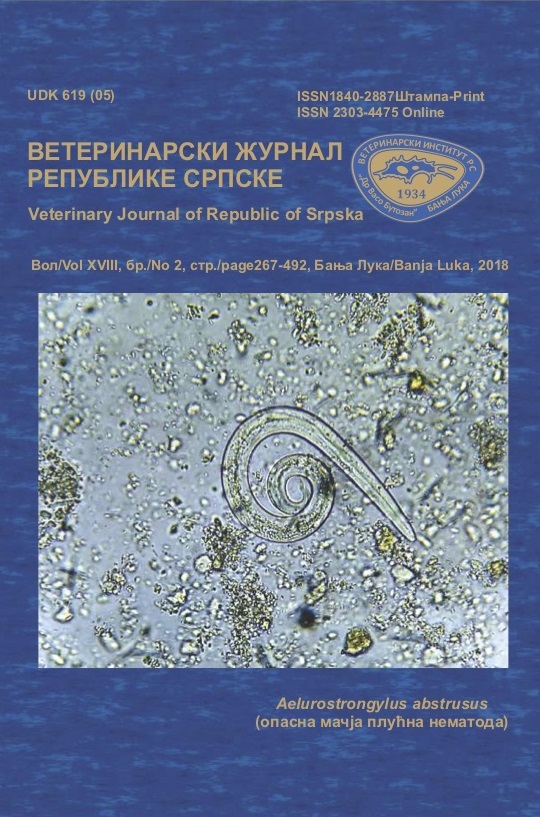THE IMPORTANCE OF BRUCELLIN ALGERIC SKIN TEST FOR DIAGNOSIS OF BOVINE BRUCELLOSIS
DOI:
https://doi.org/10.7251/VETJEN1802392VAbstract
Infection with Brucella results in the induction of both humoral and
cellular immune responses. Humoral immune resposne is based on monitoring
the occurrence of specific antibodies against smooth lipopolysaccharide (S-LPS)
of Brucella. However, in cattle, classical serological methods can detect antigenic
determinants for other types of microorganisms (cross reactivity) such as Escherichia
coli 0:157, Yersinia enterocolitica 0:9, Salmonella urban, Pseudomonas malthopilia and
Pasteurella. The aim of our work was to determine the immunological response
based on the use of standardized and purified allergen in which lypopolysaharid has
been removed and doesn’t induce humoral immune response. A total of 16 dairy
cattle previously tested positive using RBT (Rose Bengal test) and CFT (complement
fixation test) were tested for confirmation with BST (brucelline skin test) according
to the instructions of the producer. B. melitensis B115 (Synbiotics Brucellergene
OCB) was used in the test. 14 of 16 cattle reacted with skin thickening >1 mm after
72 hours from the application of brucellin. 2 animals with no skin thickening or
thickening <1mm also reacted negative in CFT. This outcome can be attributed to
cross reactions with other antigens than Brucella that commonly occurs in Rose
Bengal test.
Brucellin allergic skin test is not recommended as a standalone diagnostic tool
because all infected animals do not react therefore this test cannot be recommended
as a self-sufficient diagnostic test or for the purpose of international trade.
However, due to high specificity and adequate sensitivity at the herd level, it can be
recommended for the control of herds in areas free of brucellosis.

